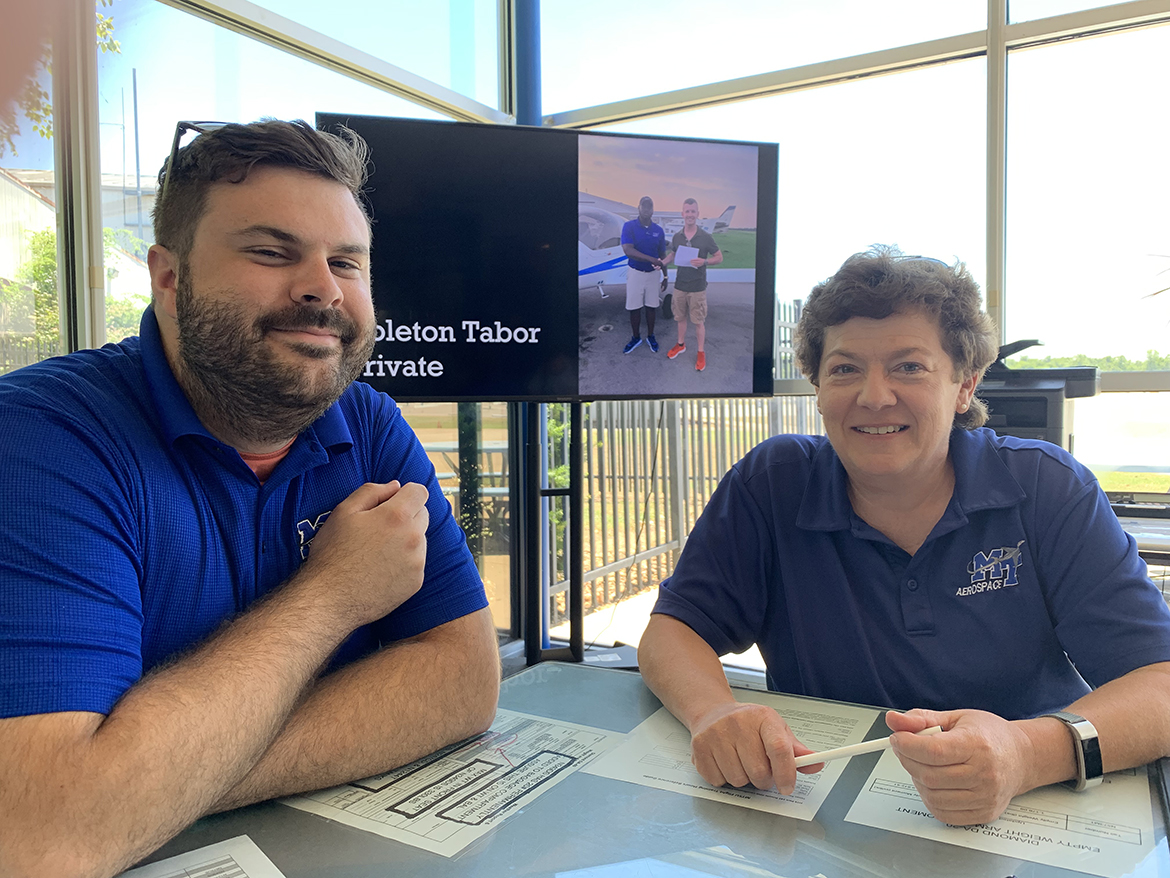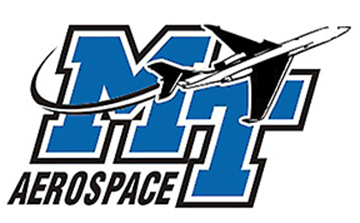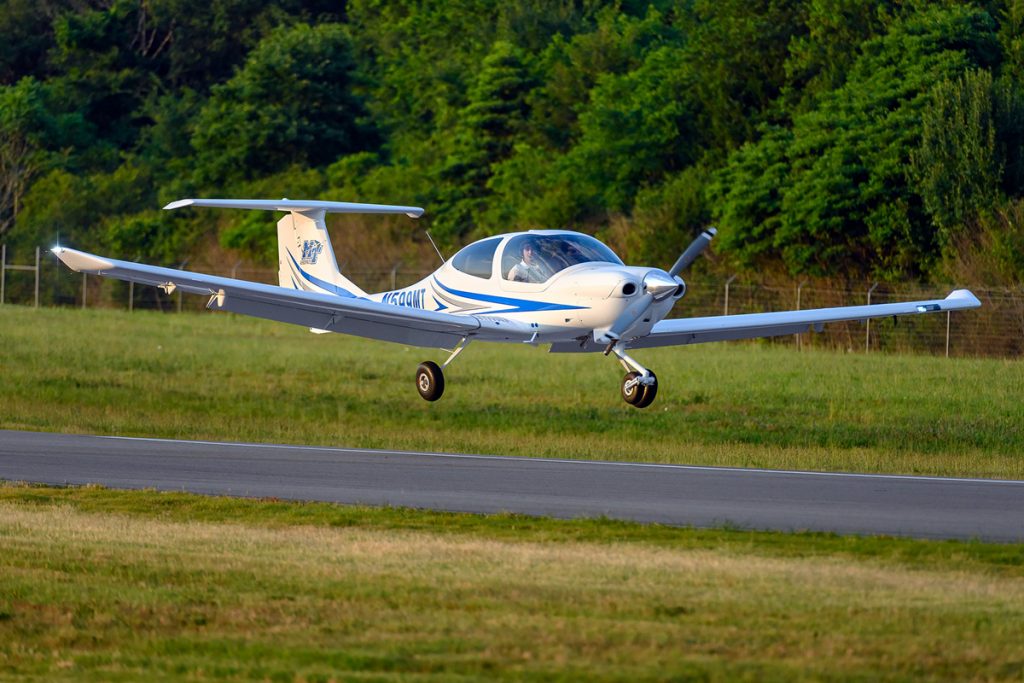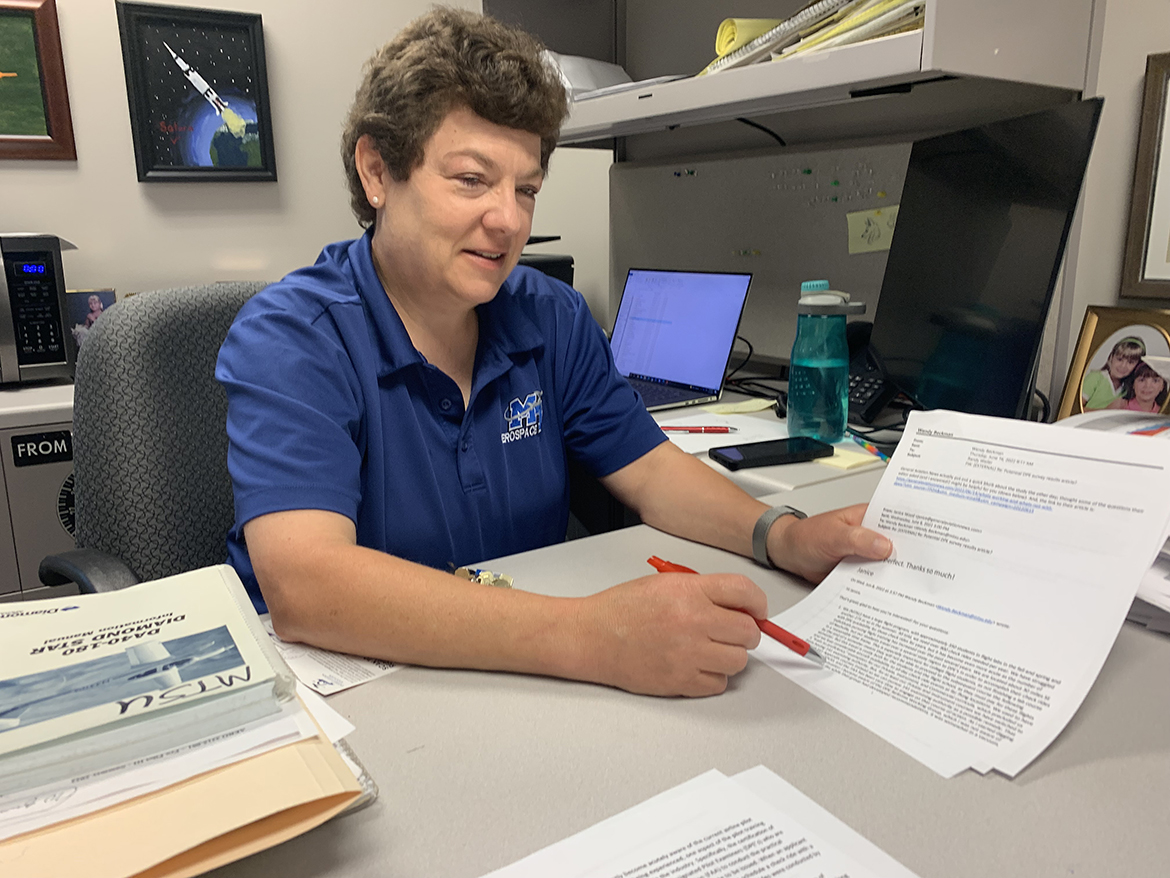A nationwide survey by the Middle Tennessee State University Department of Aerospace is shedding light on a growing aviation industry problem and generating interest across the country.
With the number of pilots needed growing as the industry returns to pre-COVID levels of activity, the ability to get pilots through the training pipeline is critical, said professor Wendy Beckman.
Beckman led the MTSU effort that began earlier this year. The former department chair said airline passengers aren’t usually aware pilot certification in the U.S. is largely conducted by a pool of designated pilot examiners, or DPEs, who are given that authority by the Federal Aviation Administration.

When an applicant for a pilot certificate has completed flight training, they must schedule a check ride with an examiner. In 2021, more than 94,000 pilot check rides were conducted nationally by examiners for various levels of certification.
Given the surge in pilot training in the past several years, those check rides are taking longer to schedule and be completed by examiners.
“This has been an issue for quite some time,” Beckman said. “It’s a nationwide problem and in 2018, Congress became involved and required that the FAA look at the designee system to determine what underlying issues there are.”

In response to that congressional mandate, a working group was created to provide recommendations for reforms. Beckman was concerned that the FAA had not reached out to the flight training community and to the designated pilot examiners to obtain their observations about the problems being experienced and potential solutions.
Researchers in the aerospace department developed a survey based on the recommendations from the working group. The wheels began turning for Beckman in January. She and associate professor Tim Rosser sent queries out in February and responses rolled in in March.
“It obviously touched a nerve. People are very interested in this,” Beckman said. “There was a robust response to the survey, with more than 300 designated examiners and 770 flight schools participating in the nationwide survey.” More than 2,000 flight schools and 850 examiners were contacted to participate.

The results: “Perspectives differ considerably between the examiners and flight school respondents regarding the current availability of check rides, with flight schools perceiving a much greater issue,” she said.
“Specifically, flight schools responded that only 40% of their applicants are able to schedule a check ride within a two-week period, while DPEs indicated they believe that 80% of applicants are able to schedule a check ride with two weeks,” Beckman added.
“Additionally, significantly more flight schools (83%) perceived there were too few DPEs available in their geographical area than did DPEs (21%).”
The FAA has indicated it anticipates releasing its response to the working group recommendations this month.
“I hope the FAA uses the information to inform their policy decision, and I hope the DPEs and flight schools become aware of the decision-making process which is ongoing and become involved in it, as better decisions will be made if all stakeholders have a voice in that process,” Beckman said.
To view survey results, go here.

MTSU’s situation
In addition to the nationwide implications, the issue is important for the MTSU aerospace department.
“For many years, our flight school has struggled with designated examiner availability,” Beckman said. “But it has become even more acute as we have grown in recent years. Our students travel regionally across Tennessee and several states in order to accomplish their check rides in a reasonable time frame.”
Time and expenses are involved for MTSU students’ out-of-town check rides. Sometimes delayed check rides — delays of several weeks or even up to seven weeks — force students to wait until their next semester to finish a flight course.
“It’s awesome to see some data prove what we’ve been seeing on the ground,” said Michael Gref, chief flight instructor at the MTSU Flight Operations Center at Murfreesboro Airport. “Our number of check rides have doubled in the last five years. It’s become a lot more difficult to get our students finished with their check rides.”
—Randy Weiler (Randy.Weiler@mtsu.edu)

COMMENTS ARE OFF THIS POST